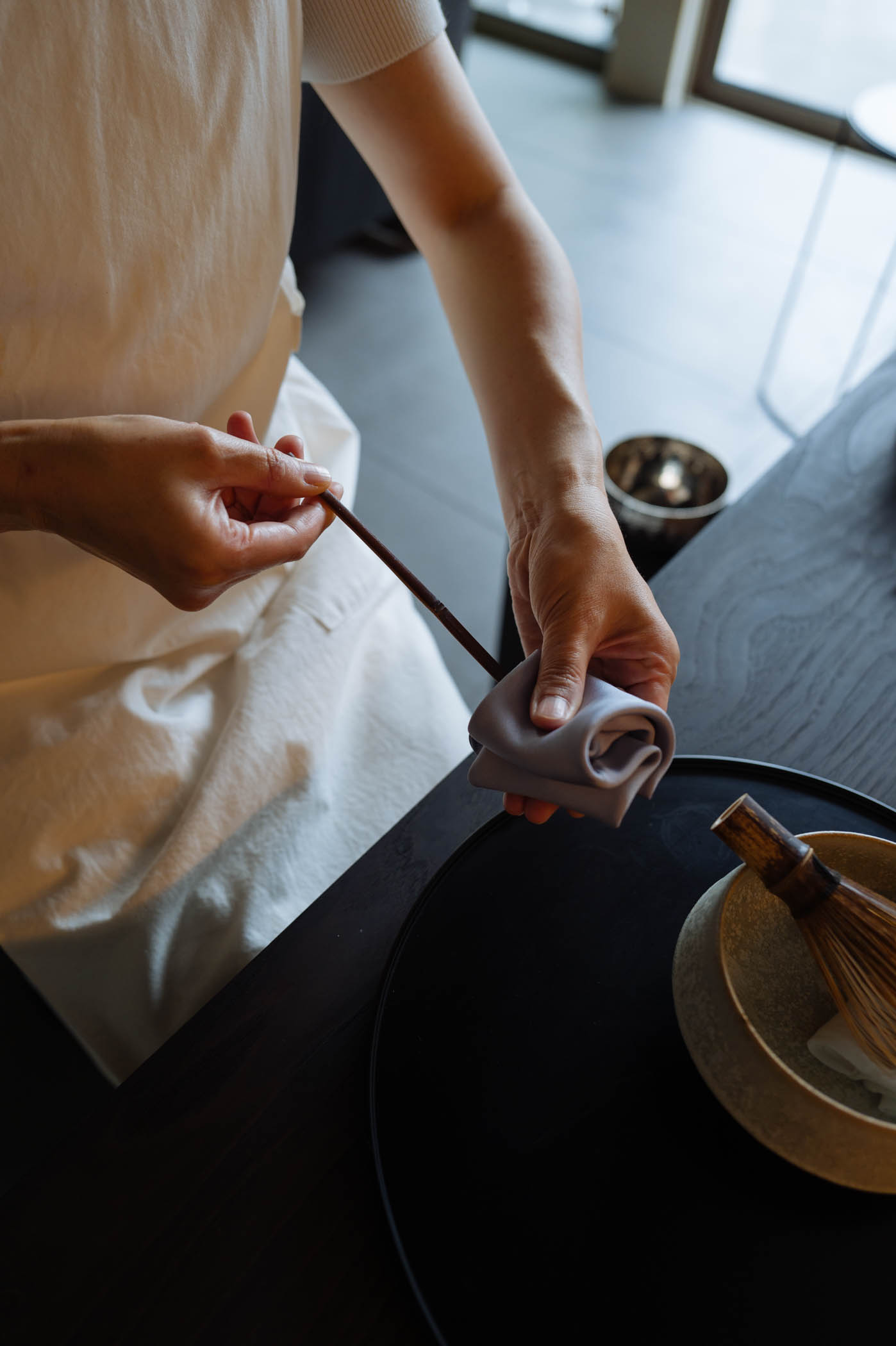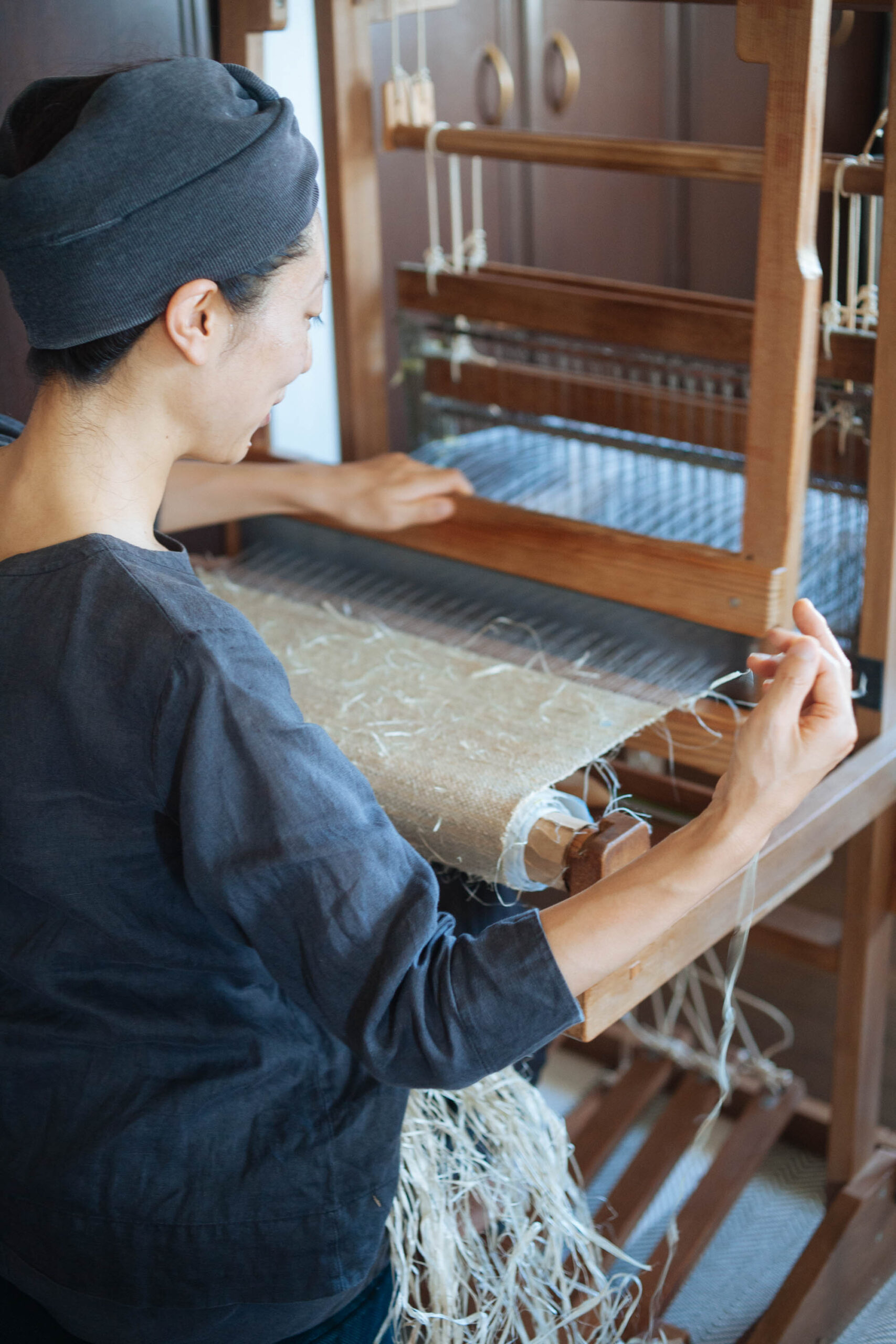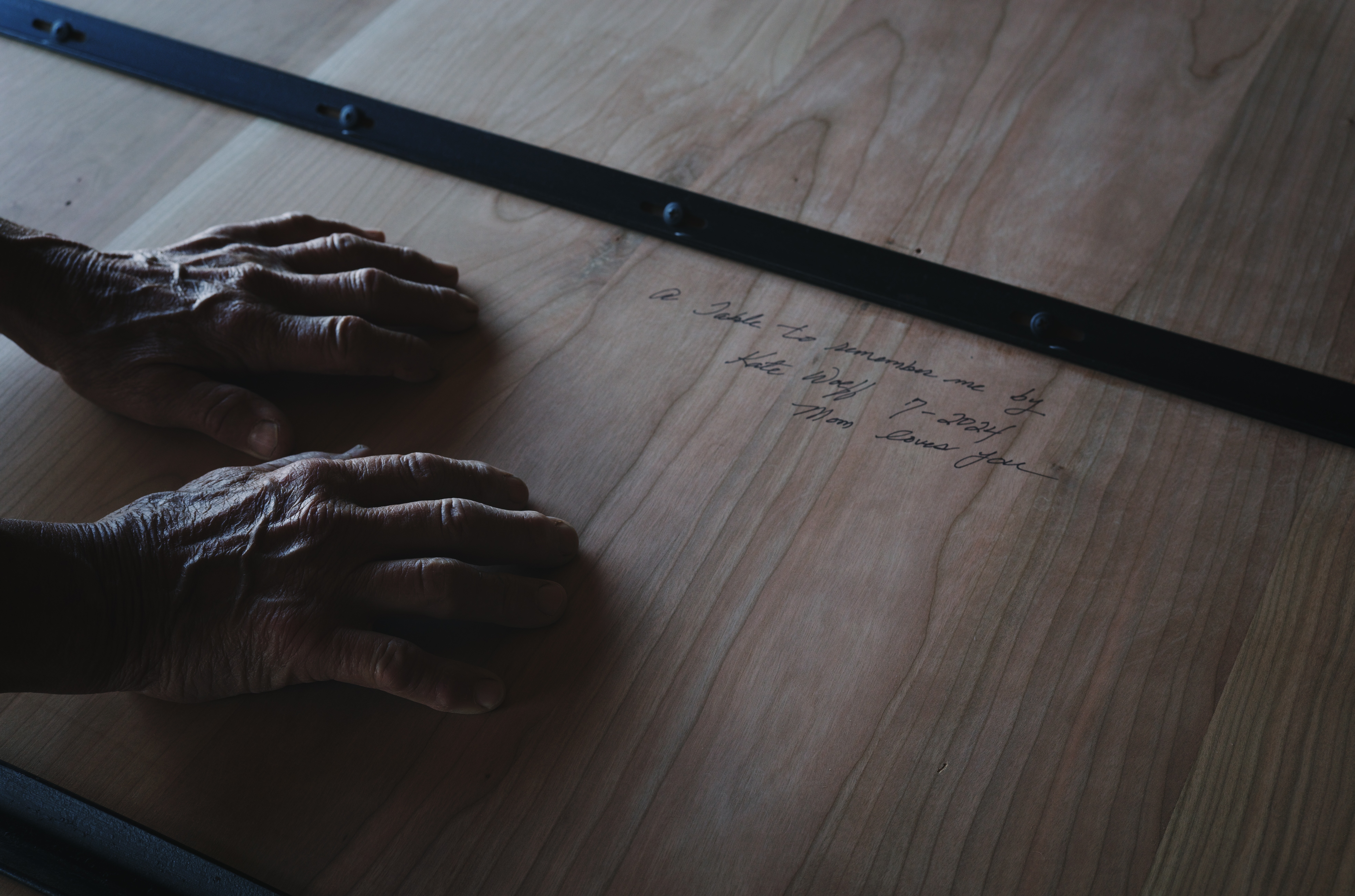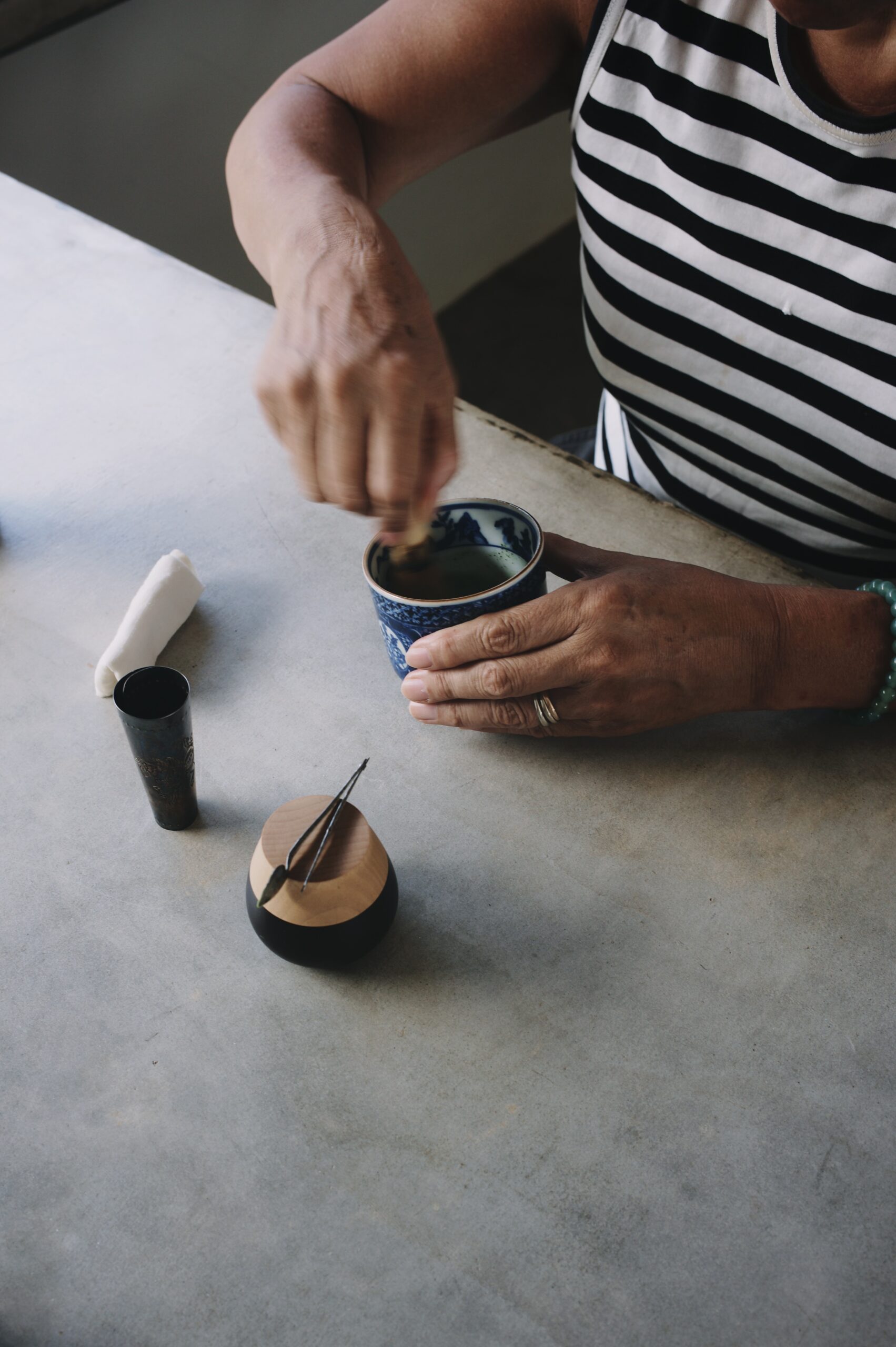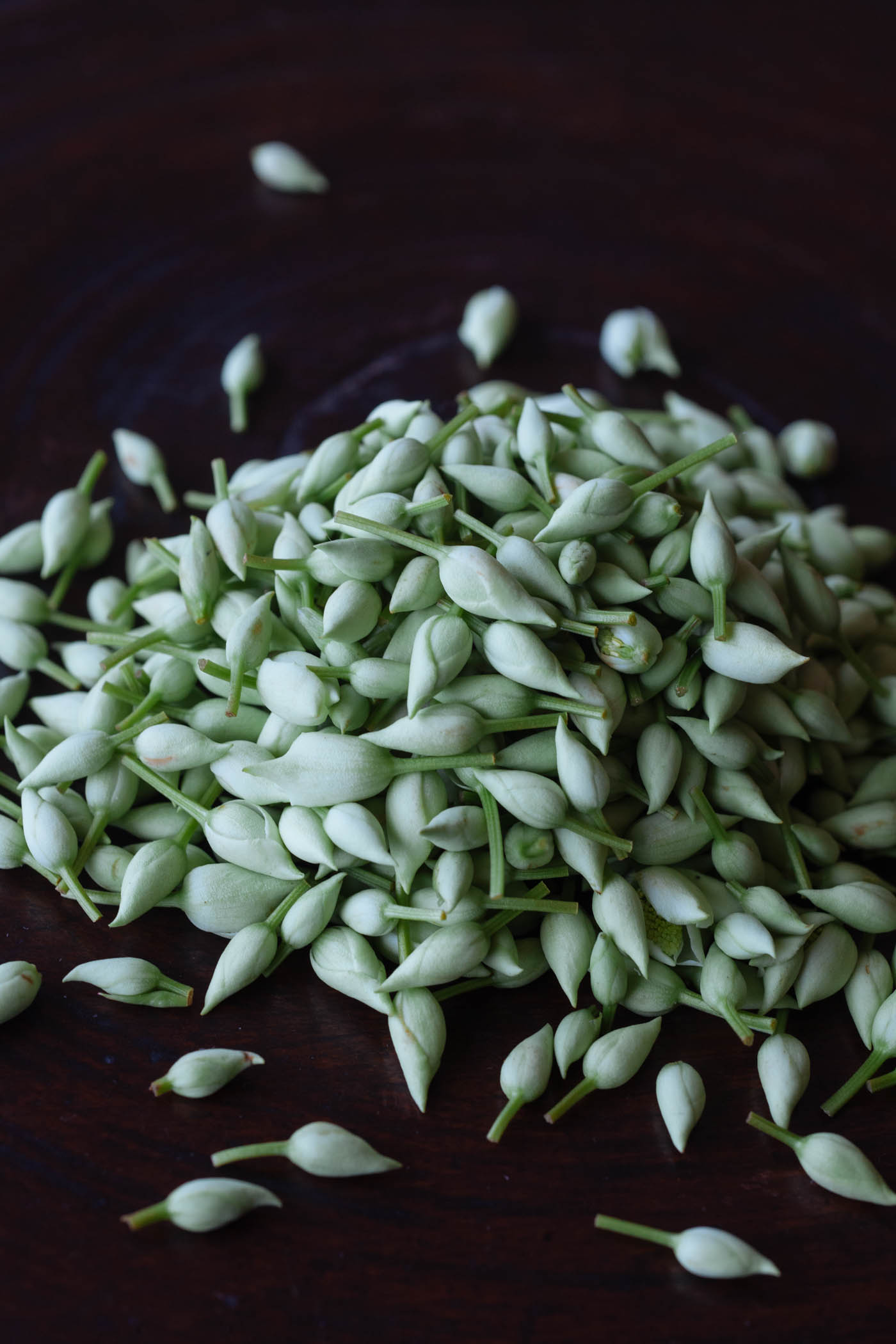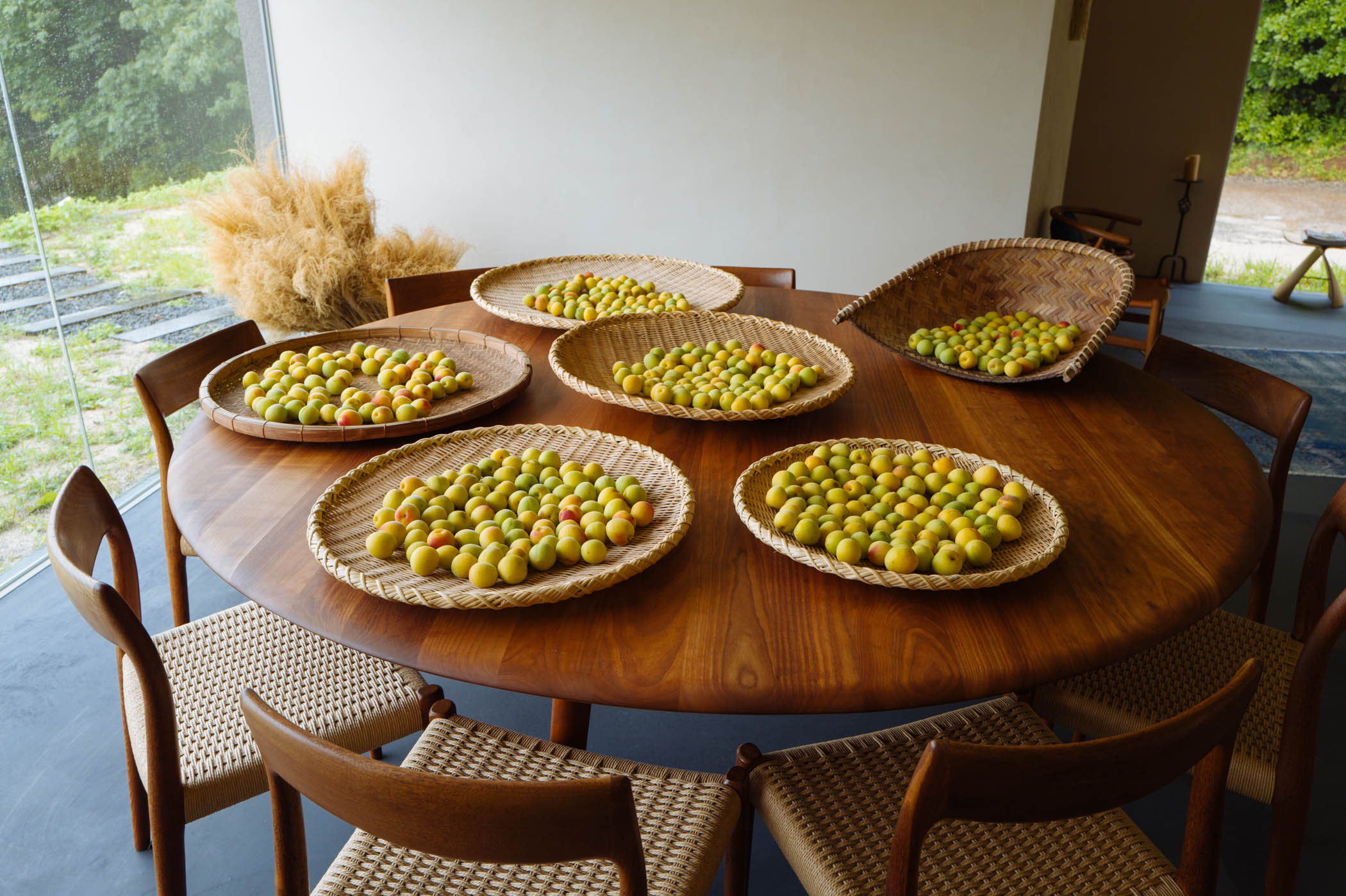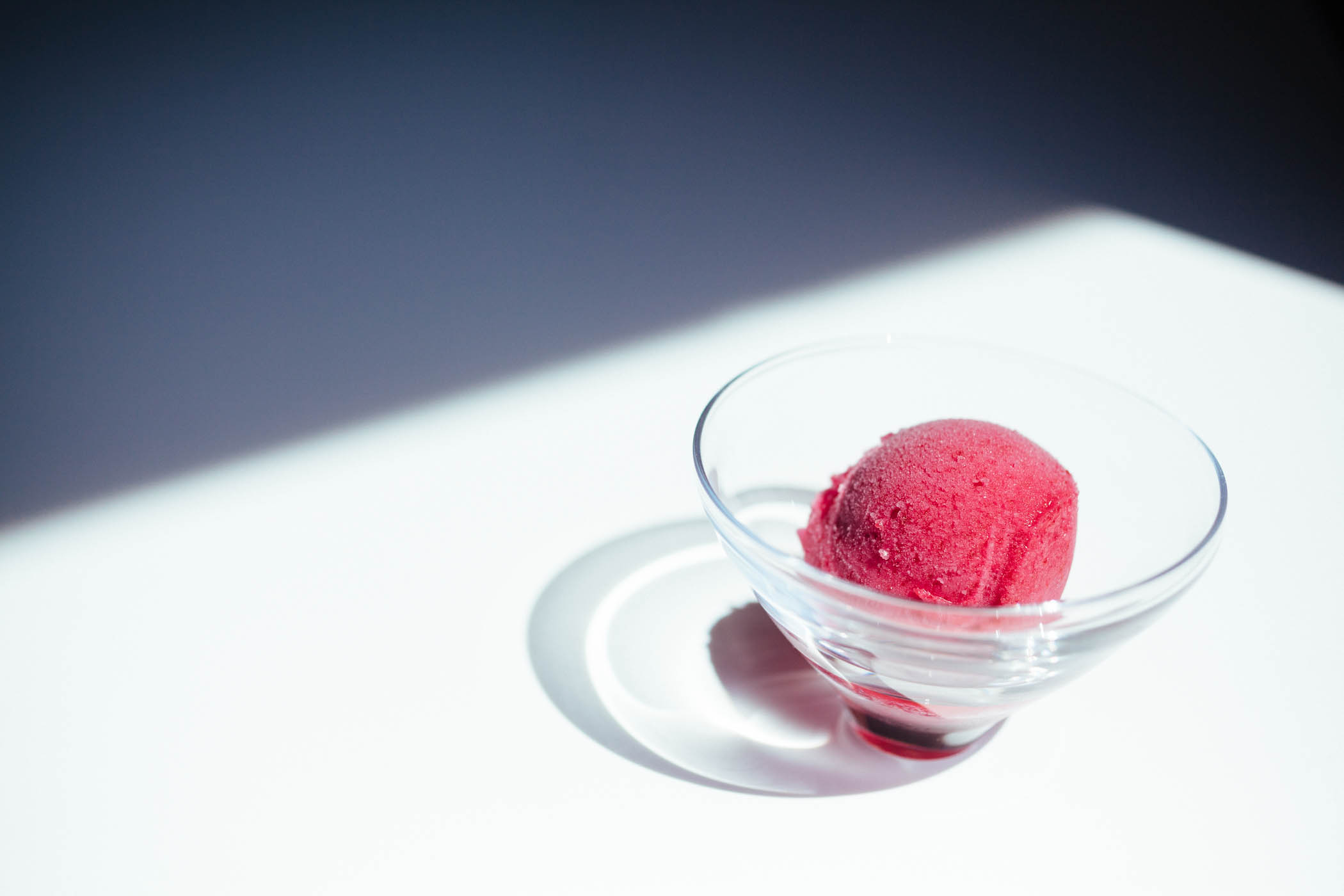I cup the bowl and lift it ever so slightly toward the heavens, then bow to take the first sip. For a moment, the whole world stills. Just the scent of matcha — green, alive, softly bitter — and the feel of warm clay against my skin.
I’m perched at the camphor wood counter in the salon. A bouquet rests in an antique pewter pitcher. I wear the clothes of an ordinary day. This is not a tatami-lined tearoom. And yet, the essence cultivated in that rarefied space exists here too — alive and intact.
For years, I admired the Japanese tea ceremony from the edges. I loved its beauty, its silence, its form. I loved that it held everything I treasure: seasonal food, flowers, poetry, philosophy, and the grace of deliberate gesture. But the traditional form felt distant from my life — not inaccessible, but unharmonized. I longed for a way in. Something true, but personal. Rooted in tradition, yet relevant to my realm.
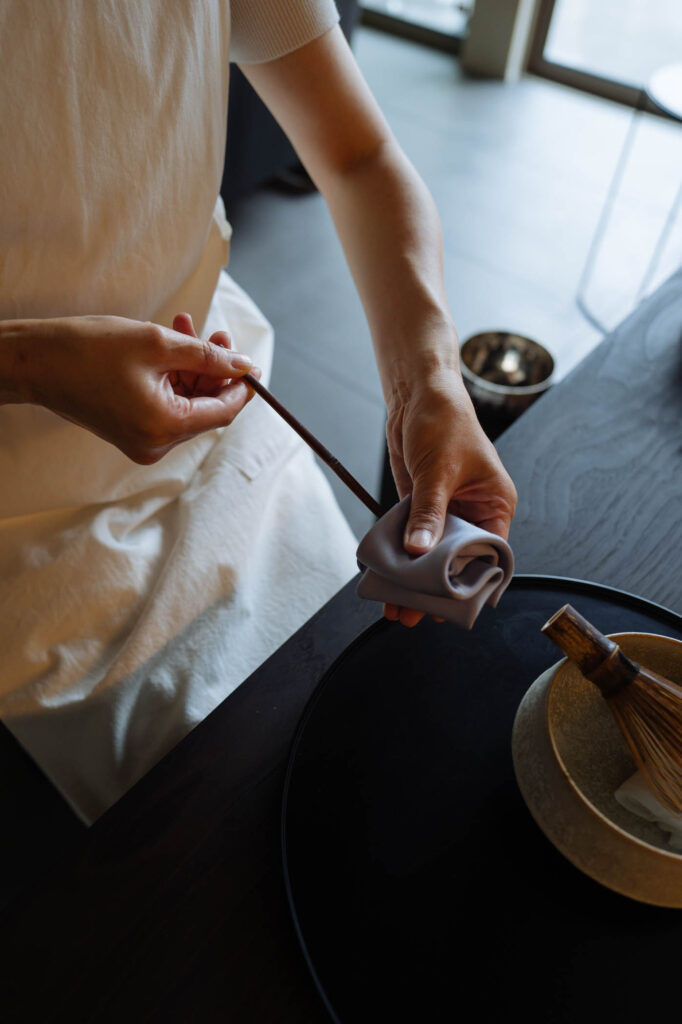
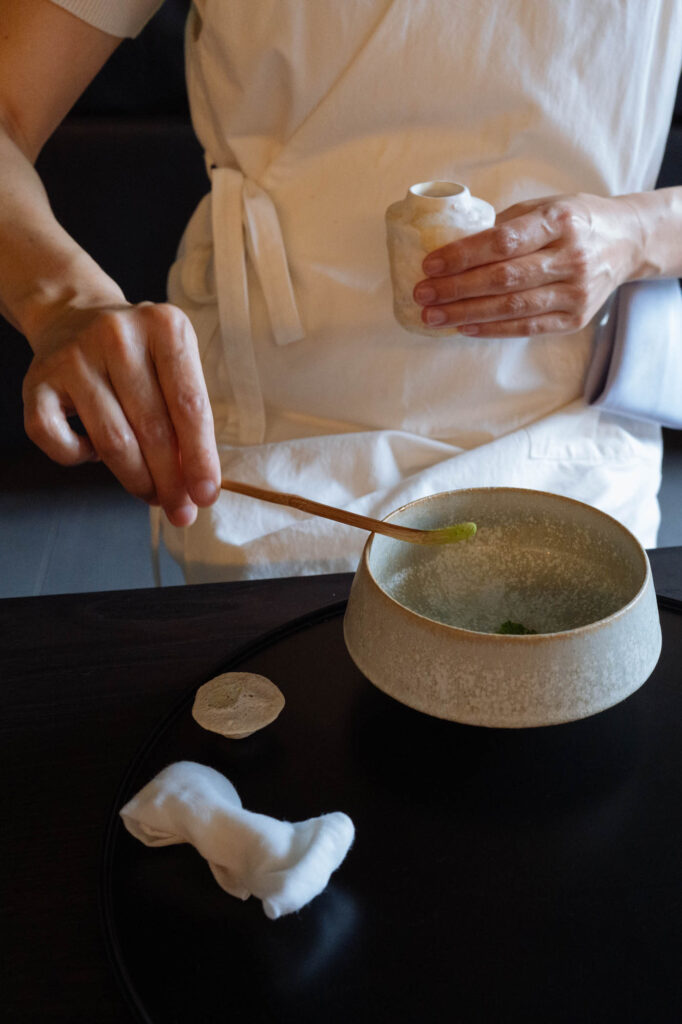
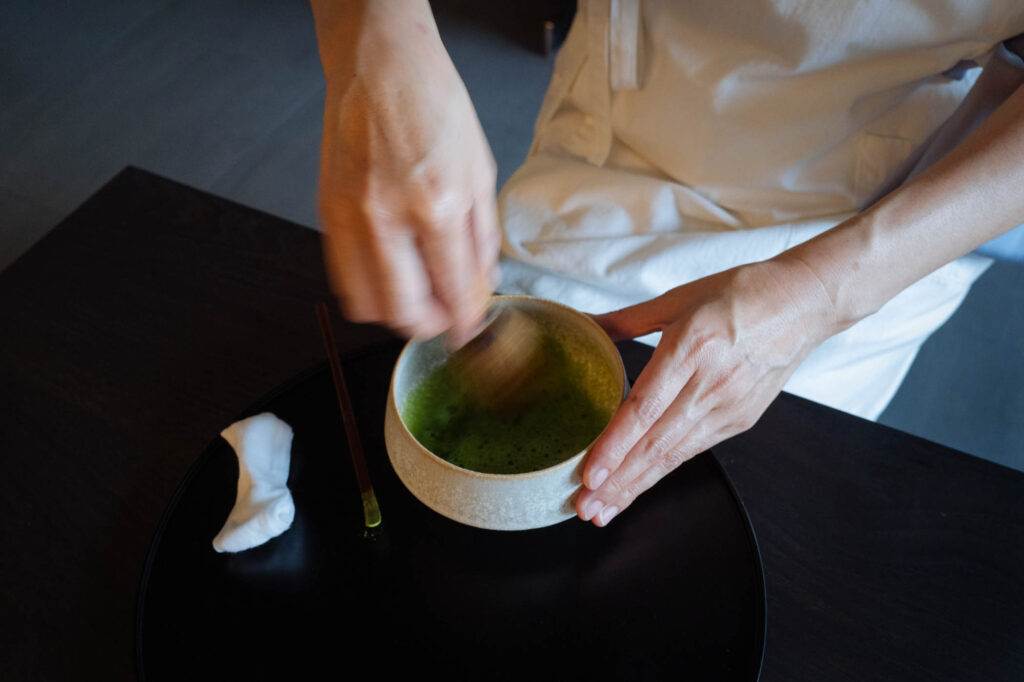
I found that way in bon tate — table tea. No formal tearoom. No kimono. No elaborate ritual. Just a low tray, a few beloved tools, and the quiet discipline of attention. When I met Koga-san — a teacher whose sensibility, reverence, and rhythm mirror my own — something opened. With her, tea became not just a study, but a language. A conversation. A devotion. The one I had longed for.
Most tea teachers show you how.
Koga-san teaches me why.
One of my first lessons with her changed everything — and sealed my loyalty to her path: You drink matcha in three and a half sips.
I had known the rule for years, but never the meaning.
“In the first sip,” she said, “you express gratitude for the people around you. In the second, you thank your ancestors and the deities of your faith. And in the third, you give thanks to yourself.”
And then comes the final half sip — the moment when you let the lingering foam gather at the lip of the bowl and draw it in with an audible inhale. You take in the breath of the world. The energy of life itself. So that you may carry it forward.
Is there anything more profound?
Three and a half sips of powdered green tea, whisked into hot water — through which you can express the most essential truths.
Gratitude for those who spirit you along.
Gratitude for your own unique, irreducible self.
And finally, a surrender. A receiving.
A quiet invocation of the universe’s abundance.
In the shortest of time, with the gift of her teaching, Koga-san illuminated what I had always sensed:
The ceremony was never just about tea.
It was always about life.
You don’t need a tearoom to practice tea.
You don’t need tatami mats or a lifetime of training.
You don’t need a perfect setting or the right outfit.
What you need is presence.
A bowl, a whisk, a moment of quiet.
A willingness to pause and offer thanks.
And you need a teacher. A guide. An inspiration.
Because the movements matter.
Movement and meaning, gesture and intention — tea is where the two converge, becoming more than the sum of their parts.
True ceremony is form so well practiced, so deeply internalized, that it frees you to turn wholly toward intention.
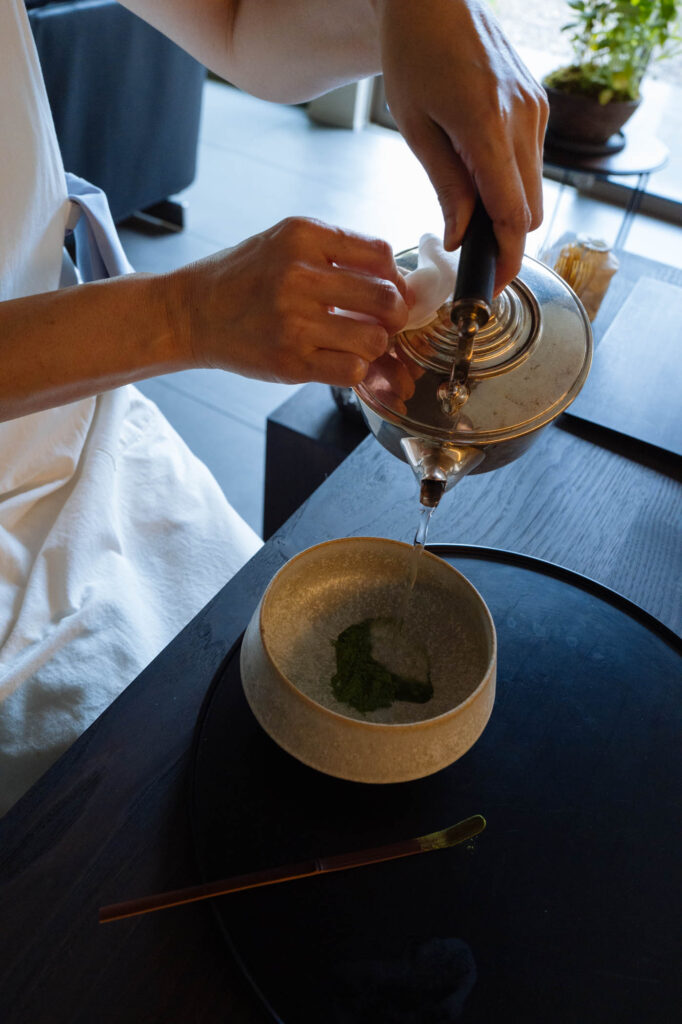
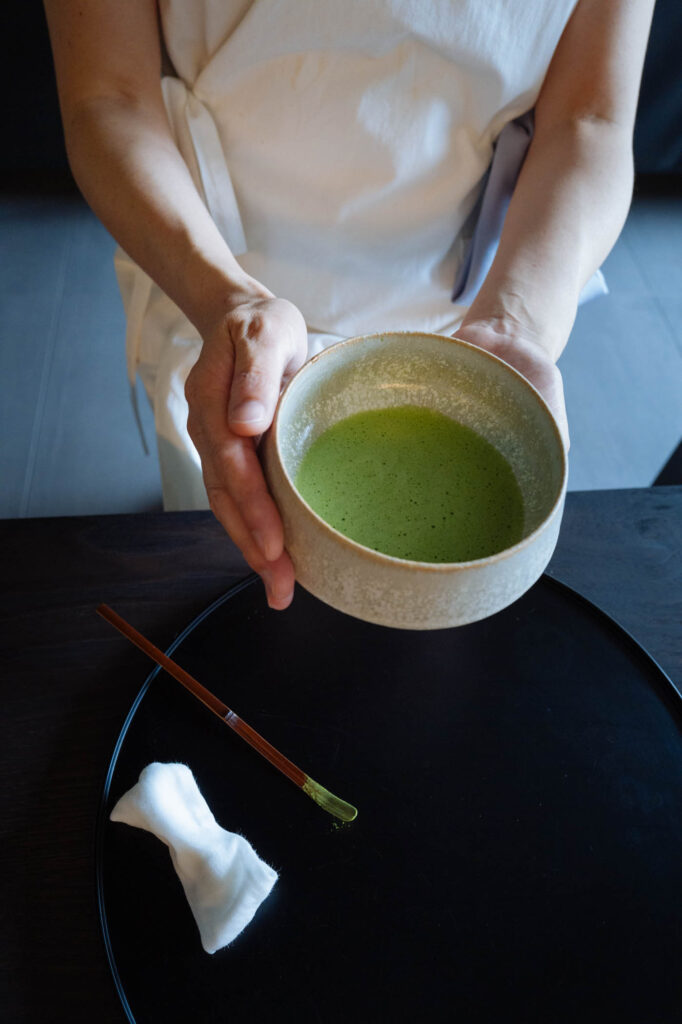
These days, we speak often of mindfulness, of daily rituals, of cultivating gratitude.
But all of that already lives in the making and drinking of a single bowl of matcha.
It’s not adjacent to the gesture. It is the gesture.
Every morning, after her family leaves and before her students arrive, Koga-san prepares a bowl of tea. She sits at her table, alone — aligning body, mind, and spirit for the work ahead. Teaching. Creating. Holding space for others.
This is the tea I believe in.
The kind that humbles and grounds.
That restores you to yourself.
It’s not performative. It’s personal.
And in that intimacy, it becomes sacred.
Not a practice of perfection, but of devotion.
This, to me, is the heart of being In the Presence of Tea.
Not ceremony as spectacle — but ceremony as soulwork.
Not tradition as constraint — but as continuity.
A way to remember what matters.
A way to return and begin again — all at once.
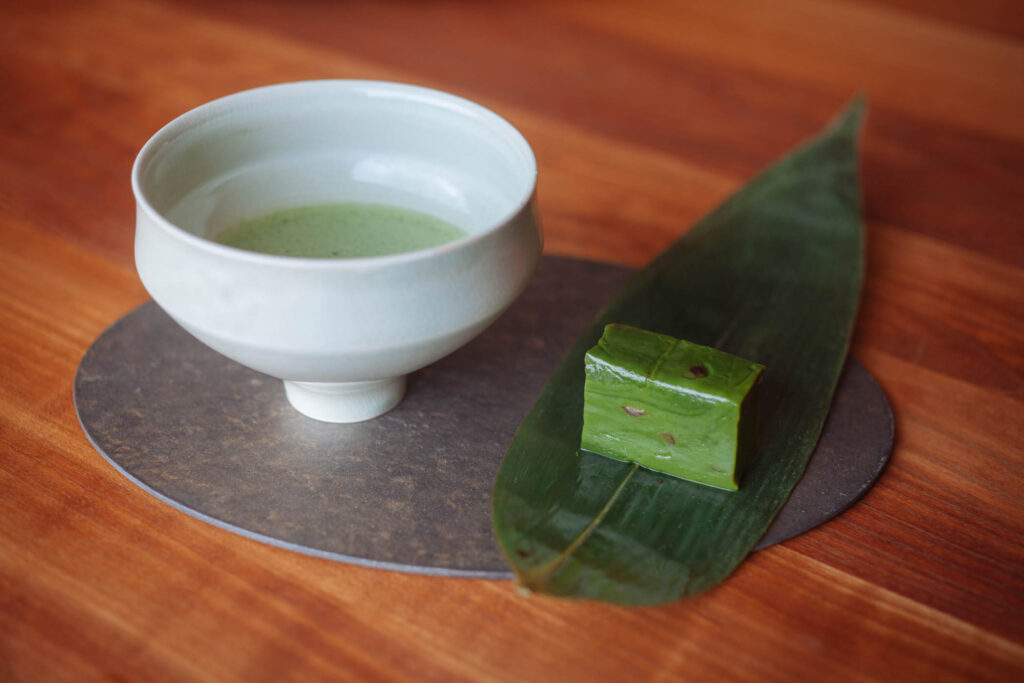
Koga-san will bring her wisdom and practice to a masterclass offered during our Sakura Season session.
